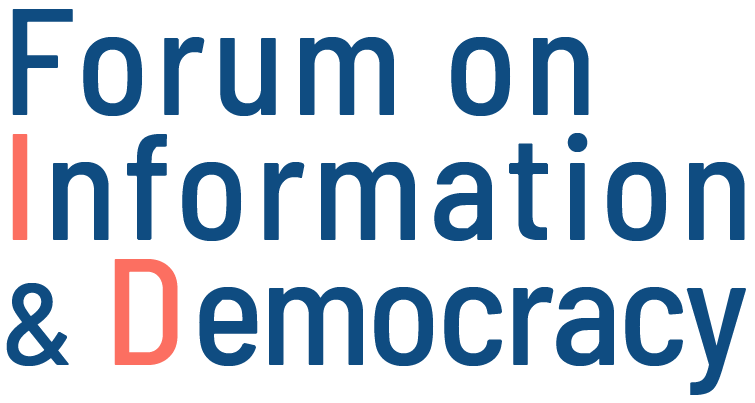Working group on infodemics
Design a policy frameworkThe infodemic accompanying the Covid-19 pandemic shows the necessity, if any proof were needed, of guarantees for freedom of opinion and expression, including the right to reliable information, in the digital world.
In June 2020, the Forum on Information and Democracy launched its inaugural working group. The Forum asks experts, academics and jurists all over the world to define a policy framework (set of recommendations) to respond to the infodemics through four structural challenges.
Report
On 12 November 2020, the Forum on Information and Democracy published the report of the working group entitled “How to end infodemics”. Based on more than 100 contributions from international experts, it offers 250 recommendations on how to rein in a phenomenon that threatens democracies and human rights, including the right to health.
Scope
Chapter 1
Meta regulation of content moderation
To evolve from content regulation to meta regulation (regulation of the corporate actors that dictate the moderation rules), we need to develop a set of principles that platforms and social media will have to accept, in accordance with international standards of freedom of opinion and expression.
Chapter 2
Platforms’ design and reliability of information
The pandemic has demonstrated the need to reverse the amplification of sensational content and rumour by promoting reliable news and information in a structural manner. Based on established criteria, mechanisms and policies to promote the authenticity, reliability and findability of content are to be determined.
Chapter 3
Mixed private and public spaces on private messaging systems
The virality of fake news shared on messaging apps is reinforced by the use of groups that sometimes have thousands of members. It is important to define minimal rules for messaging apps that exploit the possibilities of the online public domain while complying with international standards on freedom of opinion and expression.
Chapter 4
Transparency of digital platforms
Access to the qualitative and quantitative data of the leading digital platforms and access to their algorithms is a prerequisite for evaluating them. Transparency requirements must therefore be imposed on the platforms in order to be able to determine whether they are respecting their responsibilities in the aforementioned areas and, in general, with regard to their business models and algorithmic choices.
Steering Committee
The Steering Committee is co-chaired by Maria Ressa and Marietje Schaake.
